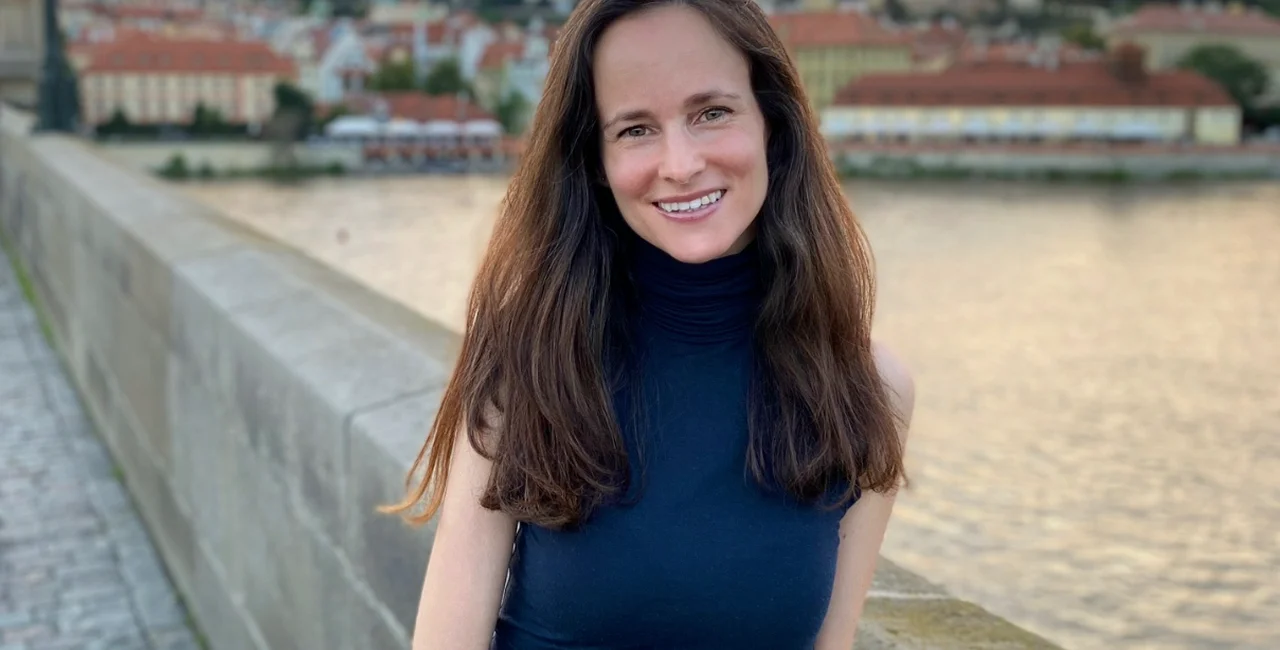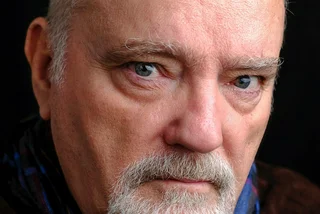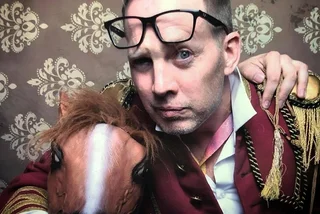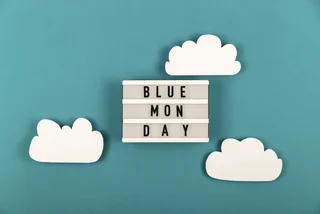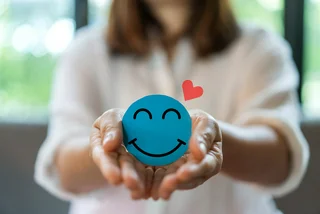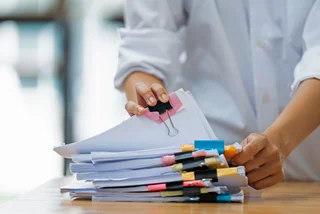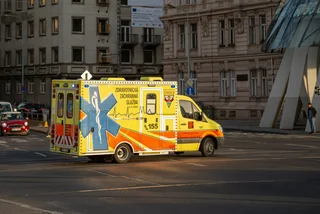Ever think that city life is too much and you'd like to just pack it all up and move to a cabin in the woods? That's exactly what Bethany Butzer did in 2015. Her decision made international headlines from Today to the Daily Mail.
The Canadian academic now lives in the Czech capital and teaches in the School of Psychology at the University of New York in Prague. Since moving to Prague, she has given a TEDtalk titled "Stop Trying So Hard: Achieve More By Doing Less," which has been viewed almost two million times on YouTube.
PARTNER ARTICLE
What motivated Butzer, a Ph.D., doing post-doc research at Harvard to ditch academia and look for meaning in the wilderness of Northern Ontario? And how did she and her husband eventually end up in Prague? We recently spoke to Dr. Butzer about her journey from the Ivy League to cabin life to the Czech Republic and TEDtalk fame.
You were working at Harvard, you decided to move to a cabin in the woods and now you live in Prague! Tell us your backstory first of all. How did you get from there to here?
"I was doing a post-doctoral research fellowship at Harvard Medical School and it was supposed to be my dream job in the sense. I was doing research on yoga and meditation for children and as a yoga teacher and practitioner and as someone who is trained in and passionate about research, I was really excited about this job at Harvard. But after a couple of years in that position, I realized that it was a lot of competition and I was putting in a lot of hours and feeling burnt out. I realized that no job is worth my health and wellbeing so I made the difficult decision with my husband who was born and raised in Canada just like me, but whose parents are Czech, to live in Prague.
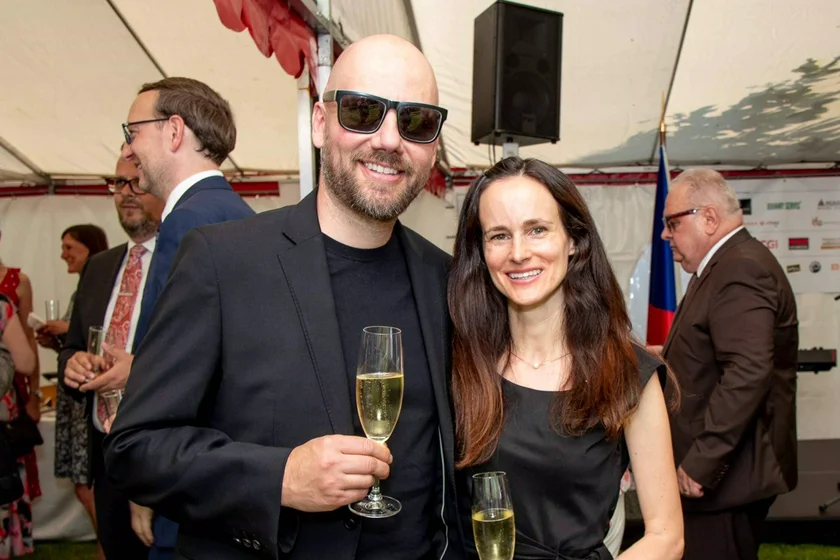
But you didn't come to Prague right away, you took a bit of a detour?
We created an Excel spreadsheet and listed all the different cities in the world where we would want to live and then we rated each city in terms of values like art and culture, the flexibility of schedule, beauty, things to look at, etc. We each did a sheet separately and when we came together in the end, Prague came out on top. Our second choice was to live somewhere in the woods, in nature, so we decided to do both and lived in a cabin in Northern Ontario for a couple of months, which was amazing!
Then we moved to Prague and I had contacted the University of New York in Prague and asked if I could teach a course and so they agreed to let me teach one course on positive psychology and so I came to Prague basically just with that, knowing that I had one course to teach and had to figure out the rest of it on my own.
You've obviously lived in a lot of different situations in a short period of time, how do they compare and contrast?
I crave both intellectual stimulation and nature. Boston and especially Harvard provided a lot of intellectual stimulation but I wasn't getting the nature and the rest and self-care that I wanted. I am intellectually stimulated here through my academic position which has since grown so Prague ended up coming out on top because I can also go 20 minutes on a train ride that costs next to nothing and suddenly be in some beautiful forest or on a hiking trail or in the mountains.
Back in Canada, I would have to fly six hours to see a mountain. I'm from near Toronto, where there isn't a lot of mountains in that area. Czechs often ask my husband and me, 'why would you move here from Canada? Canada is so beautiful?' I think people are envisioning Canada as having lots of mountains and waterfalls, but the Toronto area, it has its benefits but mountains and waterfalls are not one of them."
How easy or difficult was it to transition to life in Prague?
I've lived here for around five-and-a-half years and the transition was made easier because my husband had Czech citizenship and speaks Czech. But there was a lot of paperwork and stamps and administration. I can use my husband as a built-in Google translator if he's with me. But I don't speak Czech very well. I can understand quite a bit but I find in Prague it's almost too easy to not speak Czech because so many people speak English. There is so much beauty and culture and art and my husband is an artist and we both really enjoy that aspect of life, its like eye candy here all the time. I still never get tired of the views.
On the other hand I exist in a bubble, the university I teach at is an American university, so it is all English speaking. Many of my students are Czech, most of my students are are European and my husband's relatives still live here so I get some flavor from that. But when you don't speak the language it makes for an extra layer of effort just to get basic household things done. I am much quieter now, I pay attention to people's body language, facial gestures, it opens up a whole new realm of sensing when you live in a country where you don't speak the language.
You've given a TEDtalk here, which has been viewed over a million times, focused on achieving more by doing less, can you explain this concept?
I think one of the main components of achieving more by doing less is this concept of the difference between upstream effort and downstream effort. Upstream effort is this type of effort that most of us are engaged in regularly. It is this societal push that we have in most western, modern cultures to work hard, even overwork, to push ourselves, to constantly be achieving, seeking more money, a bigger house, a better job, etc. When we're engaged with upstream effort, we push and push and push and we might even be very successful but we feel worn down and burnt out and really deep inside have a sense of dissatisfaction or longing for a different kind of life.
By contrast there is downstream effort; which doesn't mean you're not trying but you are more open to what I would call the natural flow of life. So if some obstacle gets in your path and you can't immediately achieve some goal, you step back and take a moment and maybe shift gears or do something different. You don't overbook or overwork yourself. You become satisfied with "less."
How have you applied this in your own life?
I could have stayed at Harvard, I was on a career track to become a professor there, and that would've been upstream effort for me. I would've been burnt out and exhausted but it would've been prestigious and I would've had a great CV. Moving to Prague, where I still work for a great university here, even though it's not Harvard, actually fills me with greater satisfaction. I ended up on this downstream path where I'm still succeeding, but I have done all these things that are more in line with looking after myself and valuing my wellbeing."
It is interesting you talk about your own wellbeing, given that you research and teach within that field, is that something that motivates you?
For me personally, I experienced anxiety and depression when I was in my 20s. I ended up on anti-depressants for six years. It was a really difficult time for me and I tried to find more holistic ways to manage my anxiety and depression and that's how I came upon yoga and meditation.
Through personal practice, I realized how effective and powerful they were for me and because I was training to be a scientist in psychology, it naturally dovetailed with my research interests so I became interested in the science behind how yoga and meditation can help with anxiety and depression. Over the last ten years or so, research has been growing in these fields that proves these practices can be quite effective.
We are living in COVID times, how has that impacted you?
I'm fortunate that I work for two universities that have the capabilities to go online, so I am grateful that I have not lost my job during this pandemic. It is of course challenging to move to this online teaching environment where I am home constantly and teaching on Zoom constantly. I noticed in November, December this past year, I was really getting Zoom fatigue, I was feeling isolated and I was in resistance, so this is part of upstream effort as well that we resist what is. Once I had a chance to take a break over the holidays and reflect, I realized the way to get into downstream effort around this is non-resistance. It is this idea that 'ok this is how it is, I am teaching online right now, what can I do to resource myself and to care for myself while doing this?' So I bought some blue light glasses to help with the screen glare, I re-dedicated to taking five minute little breaks throughout the day where I just closed my eyes and do a little meditation and get away from the computer."
My life right now is very quiet, peaceful, almost monastic. I don't have a lot of social engagements because of the pandemic, I'm just home, I go for quiet walks by myself, I spend most of my time with my husband and my cat, following all the rules and there is a beauty in that. That puts me into downstream effort. Non-resistance is easier said than done. If I was unemployed right now, it would be more difficult to reframe and reset in that way, but even in that situation, we can at least try to look at this situation as an opportunity."
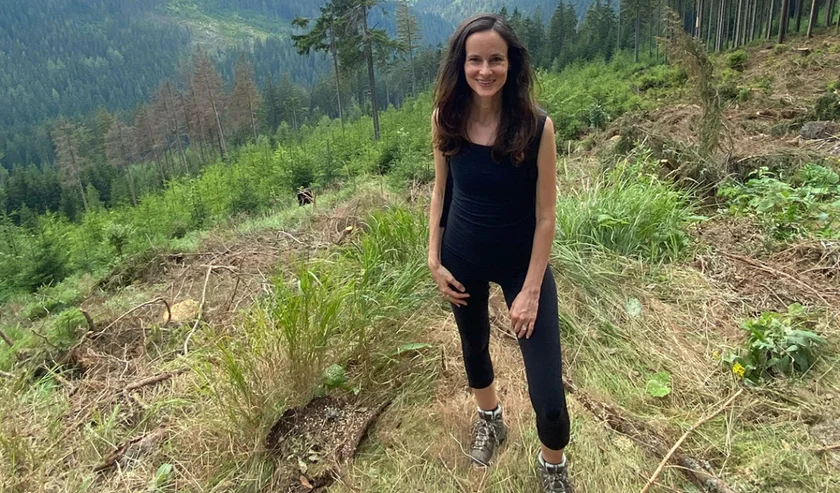
You teach at a university, how has moving to online courses impacted you?
I would say I'm pretty comfortable with technology and I enjoy working from home, so online teaching has not been that difficult for me. I like that I don't have a commute, that I can sit down and get started, so that part of it actually I've enjoyed and I've enjoyed in some ways having to get creative about how I deliver my courses, so they can still be engaging in an online format. That is probably the trickiest piece. I am working overtime, to restructure my courses in ways that make them engaging online. For my students, I think it's more challenging because they are in classes back-to-back sometimes all day, trying to learn and you're sitting all day. Whereas I am delivering content, it's a different process to deliver content as a teacher to learn and receive it as a student."
As someone whose research focuses on wellbeing, what advice would you give to people at these troubling times?
It's important for expats to try to increase their sense of community outside of the expat bubble. That is something I have struggled with and I have re-committed to this year. To try and engage more with Czech people. Even if it is online to join groups with other Czechs. I know that there are groups out there where people want to learn from each other.
I think we really need to be compassionate with ourselves especially at this time. There is the quote 'be kind, for everyone is fighting a hard battle' and I try to remember that when I get annoyed or I'm trying to pull my mask from my bag and it's not working and I get the urge to be angry at someone or snappy and I think we really have to compassion and kindness for each other and appreciate the service workers and the people who are still working. I would say kindness and self-compassion are key tools helping me get through this time.
This article was edited for clarity and length.











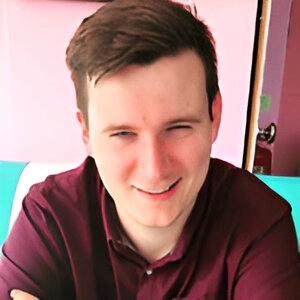
 Reading time: 9 minutes
Reading time: 9 minutes 